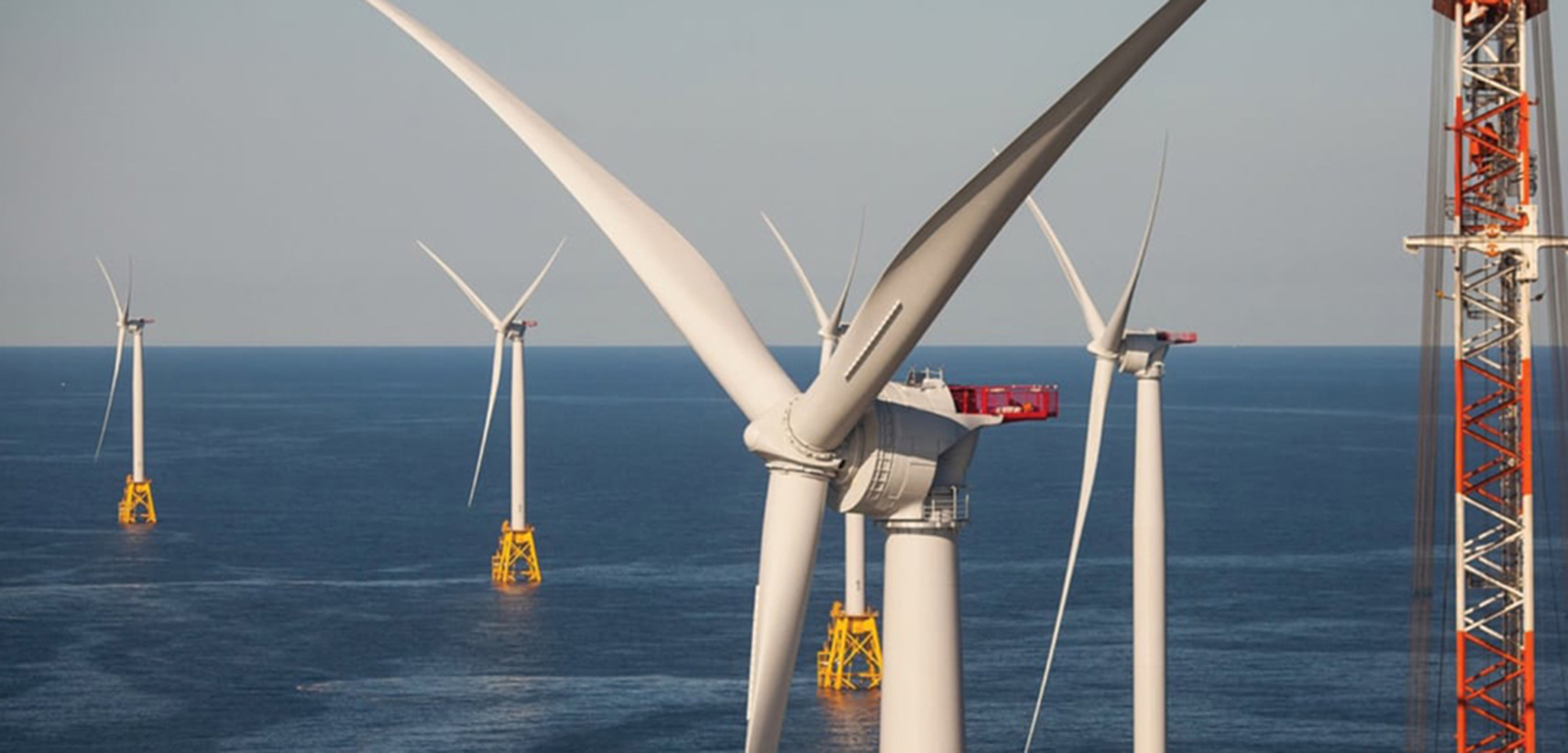Deepwater Hearings Shelved Until August

Ørsted/Eversource Energy’s quest to bring electric power to East Hampton was dealt a blow on April 8 when the state’s review of its application was postponed because of the COVID-19 pandemic.
Ørsted, which acquired Deepwater Wind, a leading offshore wind developer, and then sold 50 percent of its share to Eversource Energy, is racing the clock to meet a self-imposed deadline to be online by the end of 2022. The project, known as the South Fork Wind Farm, still needs town, state, and federal approvals. Federal tax credits to help fund the project are also expiring at a time when congressional support for wind power may be waning, especially in light of the recent massive outlay to combat the novel coronavirus.
In September 2018, Deepwater Wind South Fork, LLC filed an application with the New York Public Service Commission to construct, operate, and maintain the South Fork Export Cable project, which would connect the proposed South Fork Wind Farm, located in federal jurisdictional waters east of Montauk Point, to the existing mainland electric transmission and distribution system off Route 114 in Wainscott.
Ever since, the Public Service Commission has weighed the request while taking input from dozens of interveners who sought comment along the way, both for and against. The most adamant opposition comes from Wainscott residents and the commercial fishing industry.
Members of The Citizens for the Protection of Wainscott asked the commission to postpone the hearings 90 days due to complications resulting from the coronavirus shutdown. Ørsted countered, saying a 30-day postponement was sufficient, but the Long Island Commercial Fishing Association, which opposes the project because of the deleterious effects the wind turbines could have on some fish species, blasted the suggestion.
Win With Wind, a pro-Deepwater group closely aligned with the town’s ruling Democratic Party, sided with Ørsted that a 30-day adjustment of the litigation schedule will allow the parties needed flexibility.
The East Hampton Town Trustees, which may ultimately have to greenlight the project for the work needed to be done on the beach, finally made their stand public, siding with the wind company.
“Like the other parties to this proceeding, [we] are experiencing an upset in daily life brought on by the COVID-19 pandemic,” Mila Buckner wrote in a letter on behalf of the trustees to presiding administrative law judge Anthony Belsito. “We believe the DWSF’s request for a 30-day extension is reasonable, and one that balances the challenges of this unique time in accordance with the need to continue conducting business.”
Buckner acknowledged further delay might be needed depending on the virus’s trajectory.
“The town and the trustees continue to ignore their fiduciary duty to protect the beach and water, and instead would auction off our beach for the last dollar,” a spokesman for the Wainscott Citizen’s Group said April 13. “[We] will continue to work with environmental experts to hold Ørsted accountable and save Wainscott Beach.”
Bonnie Brady, representing the Long Island Commercial Fishing Association, said the short delay was insulting given the crisis at hand.
“A delay of only 30 days considering the COVID-19 issue we believe is folly,” she said. “This case should be put on pause until such a time where the case can again be a main focus of our working lives. Right now, Long Island Commercial Fishing Association members are working around the clock with local residents to try to produce machine-sewn masks capable of protecting essential workers throughout the Town of East Hampton.”
As for the subtle shift by the trustees — one mirrored by the East Hampton Town Board — two sources said Ørsted has sweetened the pot considerably for East Hampton — to the tune of over $20 million.
In 2017, Deepwater offered $1 million to the town for water infrastructure improvements in Wainscott, $500,000 to the town trustees, $100,000 for a fisheries fund, and $200,000 more to East Hampton for sustainable energy projects. Deepwater also pointed out jobs would be created, though Clint Plummer, a vice president at the time, declined to say how many.
“Given the work we have done already, the town and trustees should not start counting their money because it will be a long time coming if Ørsted continues to target our community,” said the spokesman for the Wainscott Citizen’s Group.
Ørsted lobbied Washington, unsuccessfully, through the American Wind Energy Association for an extension of tax credits because COVID-19 is “creating schedule problems.” Thomas Brostrøm, president of Ørsted Wind Power North America, LLC, sits on the American Wind Energy Association’s board. In 2015, the wind industry agreed to a multiyear phaseout of the federal subsidy.
Belsito dealt Ørsted a major blow by siding with those seeking a longer delay.
“Upon consideration of the parties’ submissions and conflicts with other proceedings, I adopt the procedural schedule listed below,” he wrote in his ruling, which stated staff and intervener testimony and exhibits will be conducted August 7, rebuttal testimony and exhibits August 28, and evidentiary hearings begun on September 30 and continued as necessary.
“We don’t anticipate this extension will alter our project schedule, but we continue to closely monitor what, if any, impact the continuing crisis will have on South Fork Wind’s timeline,” said Meaghan Wims, a spokeswoman for Ørsted. As for the benefits package being dangled in front of East Hampton officials, Wims said, “We do not comment on ongoing negotiations.”
rmurphy@indyeastend.com



